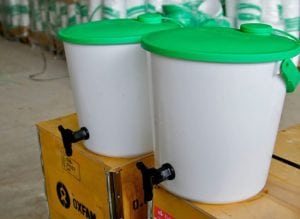
Agriculture
January 10, 2024
Oxfam Bucket
Read SolutionImplemented by
Oxfam
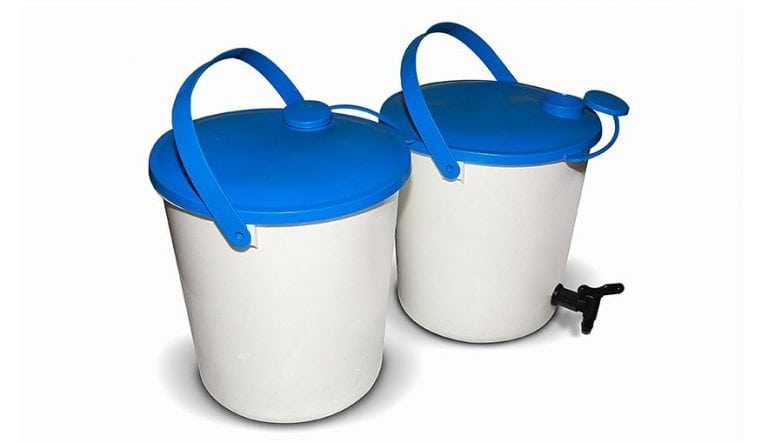
Updated on January 10, 2024
·Created on August 11, 2017
The Pura Water Bucket is safe drinking water container for household use.
Manufactured by NRS Relief, the Pura Water Bucket is a non-collapsible, heavy-duty, 14 L plastic bucket with tight-fitting lid, handle and attached clip-on cap.
Target SDGs
SDG 6: Clean Water and Sanitation
SDG 3: Good Health and Well-Being
Target Users (Target Impact Group)
Household, NGOs
Distributors / Implementing Organizations
NRS Relief
Competitive Landscape
Direct competitors include Oxfam Bucket and CDC SWS Container.
Regions
East Africa, Europe, West Africa
Countries
Nepal, Syria
Manufacturing/Building Method
This product is manufactured by NRS Relief at their production facility, H. Sheikh Noor-ud-Din & Sons, in Lahore, Pakistan.
Intellectural Property Type
Trademark
User Provision Model
User can contact NRS Relief to request a quote or a sample product.
Distributions to Date Status
Over 40,000 water containers have been distributed by NRS Relief as of 2017.
Container volume (L)
14 L
Integrated dispensing tap (yes/no)
Yes
Handle for carrying (yes/no)
Yes
Material
HDPE and LDPE
Design Specifications
The Pura Water Bucket container is manufactured from HDPE (high-density polyethylene), is durable and UV resistant. The top is reinforced to prevent ovaling. The walls meet the bottom of the bucket with a curved inside surface to prevent dirt accumulation and to facilitate cleaning. It has a tight fitted lid with a push-on cap.
This product is 14 L with a top diameter of 300 mm and a height of 300 mm.
Technical Support
Technical support is provided by the manufacturer.
Replacement Components
None
Lifecycle
Unknown
Manufacturer Specified Performance Parameters
Provide a method of safe water storage for disaster relief.
Vetted Performance Status
This product is UNHCR/ICRC/IFRC Standard and has been tested by the manufacturer.
Safety
Safety in handling the bucket to prevent cracks and breaking
Complementary Technical Systems
None
Academic Research and References
“Target region(s)” Nrsrelief.com. Available: https://www.nrsrelief.com/
“Pura Water Bucket,” Nrsrelief.com. Available: https://www.nrsrelief.com/products/pura-water-bucket/
Umair, “SDGs & Us,” Nrsrelief.com, 26-Nov-2019. Available: https://www.nrsrelief.com/about-us/sdgs-us/
N. R. S. Relief, “Rapid response strategy,” Nrsrelief.com, 16-May-2016. Available: https://www.nrsrelief.com/rapid-response-strategy/
“Our office,” Nrsrelief.com. Available: https://www.nrsrelief.com/ouroffice/
“Aquatainer 10L Collapsible,” Nrsrelief.com. Available: https://www.nrsrelief.com/products/aquatainer-10-collapsible/
Compliance with regulations
NRS Relief products comply with ISO regulations:
ISO 14000: 2004 Environmental Management
ISO 9001: 2015 Quality Management, Sales, Business Development, Supply Chain Management, Warehousing, Relief Supplies
ISO 17025: 2005 Testing and Calibration
Evaluation methods
The product has been evaluated by the NRS Relief Fund.
Other Information
The following are examples of research for safe water storage in low-income households:
“Household water treatment and safe storage options in developing countries: A review of current implementation practices” by Daniele S. Lantagne, Robert Quick, and Eric D. Mintz
Quick, Venczel et al., 1996, Narrow-mouthed water storage vessels and in situ chlorination in a Bolivian community: a simple method to improve drinking water quality, Am. J. Trop. Med. Hyg., 54 (5), 1996 pp.511-516
Jim Wright, Stephen Gundry, and Ronan Conroy(2004); Household drinking water in developing countries: a systematic review of microbiological contamination between source and point-of-use; Tropical Medicine and International Health, Vol. 9 pp. 106-117 January 2004
Eric D. Mintz, Fred M. Reiff, and Robert V. Tauxe (1995) Safe water treatment and storage in the home: A practical new strategy to prevent waterborne disease; Journal of the American Medical Association, Vol. 273
John R. Lule, et al. 2005; Effect of home-based water chlorination and safe storage on diarrhea among persons with Human Immunodeficiency Virus in Uganda; Am. J. Trop. Med. Hyg., 54 (5), 2005 pp.926-933
Ram K. Shrestha, et al. 2006; Cost-effectiveness of home-based chlorination and safe water storage in reducing diarrhea among HIV-affected households in rural Uganda; Am. J. Trop. Med. Hyg., 74 (5), 2006 pp.884-890

Agriculture
January 10, 2024
Implemented by
Oxfam
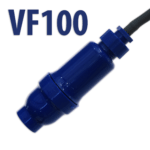
Agriculture
January 2, 2024
Implemented by
Village Water Filters, Inc.
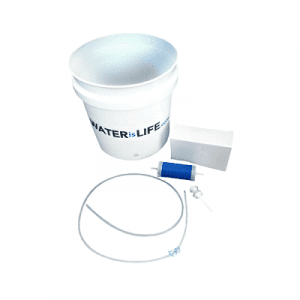
Agriculture
January 2, 2024
Implemented by
Water is Life
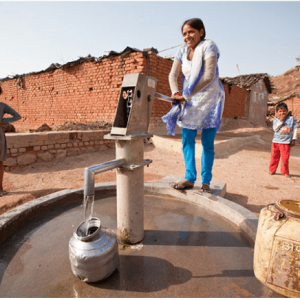
Agriculture
June 24, 2024
Implemented by
Charity: water
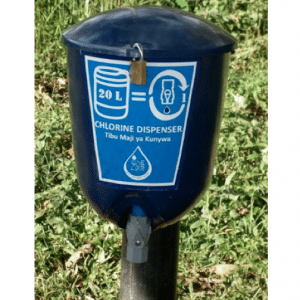
Agriculture
September 23, 2023
Implemented by
Innovations for Poverty Action
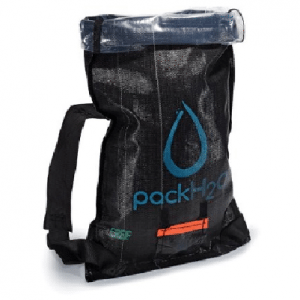
Agriculture
August 4, 2024
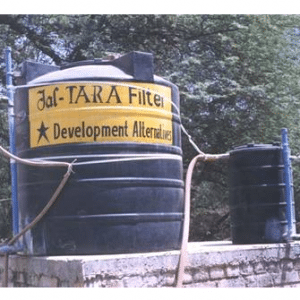
Agriculture
January 11, 2024
Implemented by
TARA
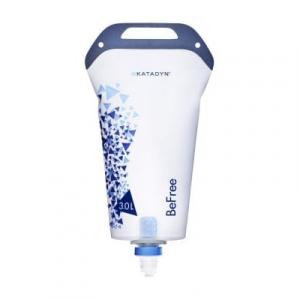
Agriculture
December 27, 2023
Implemented by
Katadyn Group
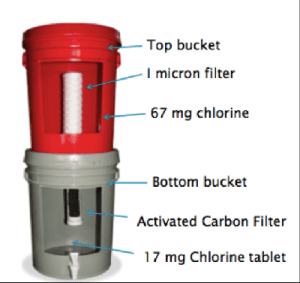
Agriculture
January 24, 2024
Implemented by
Gift of Water
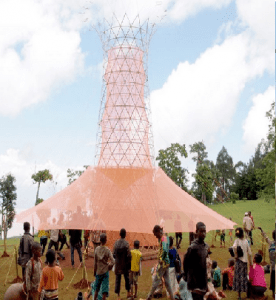
Agriculture
January 26, 2024
Implemented by
Warka Water
Have thoughts on how we can improve?
Give Us Feedback